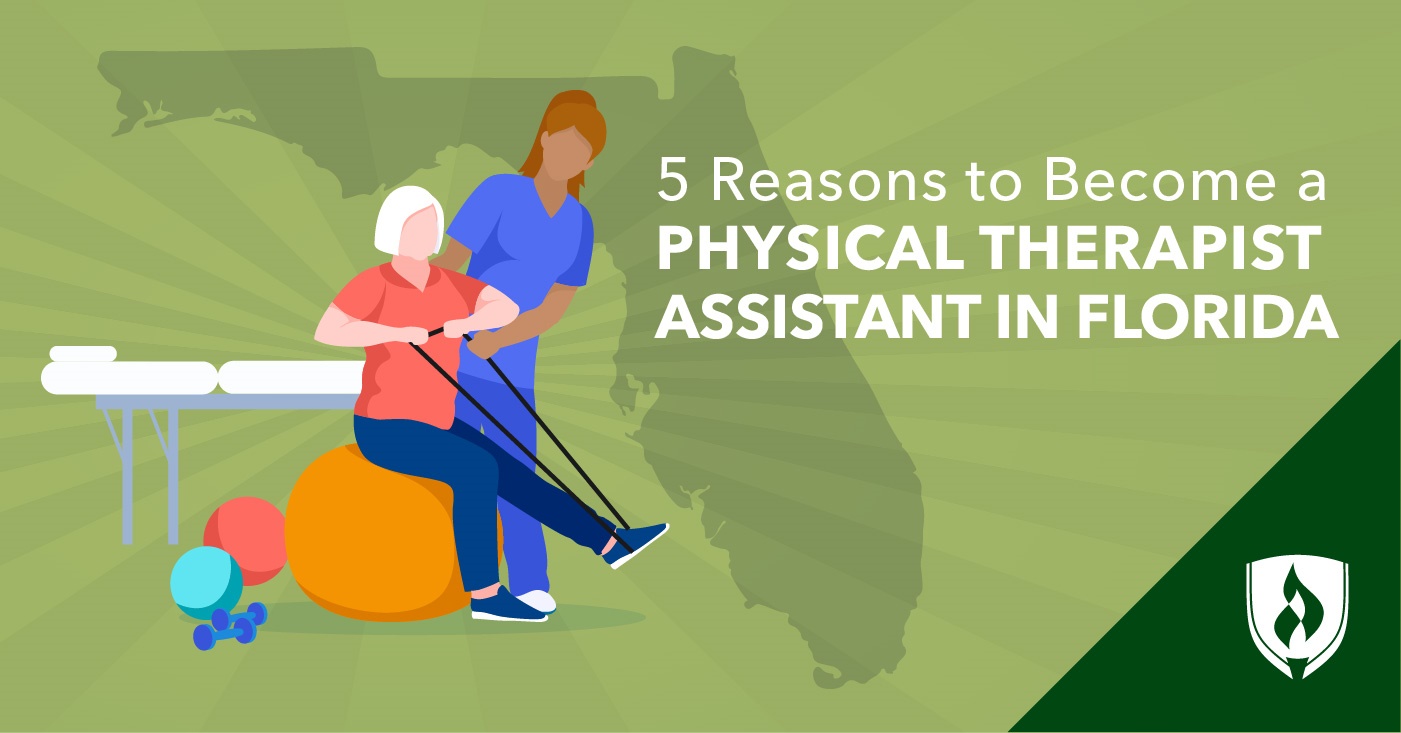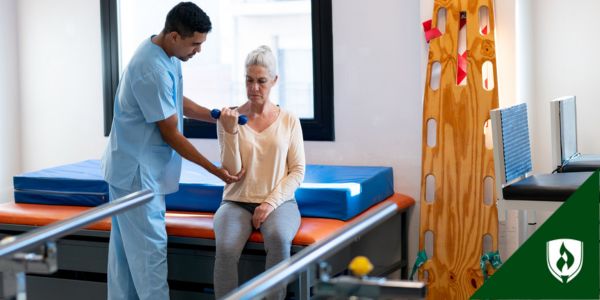
If you live in the Sunshine State—or plan to be soon—you know there’s no shortage of options for potential career paths to pursue. That’s not a bad place to be for those who are trying to narrow down their potential career next steps! Like many others, you might be strongly considering a career in healthcare where you’ll have the opportunity to work directly with patients. While roles like nurse and doctor easily spring to mind for this field, the role of a physical therapist assistant (PTA) should not be overlooked if your future is in Florida.
This lesser-known healthcare career has the potential to be an ideal fit. If you’re wondering what makes becoming a physical therapist assistant in Florida an appealing choice, we’ve got you covered. Read on to learn more.
5 Reasons why you should consider becoming a physical therapist assistant in Florida
1. It’s rewarding work
If you’re not familiar with the role, a physical therapist assistant is a healthcare professional who works closely with patients as they progress through treatments prescribed by physical therapists. This includes demonstrating and guiding patients through mobility exercises, monitoring progress and, at times, being a patient’s biggest cheerleader.
Many patients are dealing with mobility issues or chronic pain or are recovering from significant injuries. Physical therapy sessions help these patients address some of the root issues hindering their ability to move. Being able to see firsthand how a patient’s mobility (and in turn, overall quality of life) has improved with treatment is an awesome feeling.
2. Meeting great people
For those who thrive on working as part of a team, the work of a physical therapy assistant may be a great fit. Oftentimes, physical therapy assistants work as part of a healthcare team, and each team member makes a vital and specific contribution to helping individual patients heal and improve their quality of life.
Teamwork and collaboration are great life skills for many professions, and it is especially true for the role of a physical therapy assistant.
3. Demographics point to strong healthcare demand
While physical therapy nationwide has a very positive outlook for growth, the demographics of Florida’s residents are skewing older and put this profession in a strong position for continued demand. As people age, their muscles and ligaments can atrophy or become damaged—and physical therapy regimens can help slow or repair that damage.
According to the U.S. Census Bureau, 21.6 percent of the state’s 22 million people are 65 or older.3 As you might expect, that is a boon for physical therapy providers as older people often struggle with mobility issues. In Florida, employment of physical therapy assistants is projected to increase by 42 percent from 2020 to 2030, with 1,340 projected job openings each year.1
4. It’s an active career
Sure, it might not be a huge factor in your career considerations, but what good are sunshine and beaches if you don’t feel physically up for enjoying them? If spending your days cooped up in an office sitting at a desk for hours at a time doesn’t really appeal to you, working in a physical therapy role may be a better option. As a physical therapist assistant, you’ll be working directly with patients, demonstrating exercises, setting up equipment and keeping yourself on the go. An added perk for those who prefer to stay active is that your knowledge of common mobility issues and how they’re treated can serve as helpful prevention for yourself.
5. Blended PTA program options offer a fast, flexible path
Many college programs boast the beautiful scenery or hopping city life of their locations—but if your course load is so intense that you have to spend every waking hour on campus, what’s the point? Some of Florida’s PTA education options, like the Rasmussen University Physical Therapist Assistant program, allow students to blend online courses with immersive, on-campus labs.
This kind of flexible structure gives students the chance to pursue their degree while balancing other elements of their life—including enjoying some of the many attractions Florida has to offer. Another plus: the Physical Therapist Assistant program at Rasmussen University can be completed as quickly as 18 months so you can get started in your career sooner.4
Ready to become a physical therapist assistant in Florida?
If you’re in Florida, there’s a lot to like about a PTA career. If you’re ready to learn more about the steps to becoming a physical therapist assistant and how Rasmussen University could help you lay the foundation for this hands-on healthcare career, visit the Physical Therapist Assistant program page.
Alternatively, you can find your best campus option for a Physical Therapist Assistant program in Florida by checking out the Rasmussen University Florida Campus options—there may be a convenient location near you.
1“Physical Therapist Assistants – Florida” CareerOneStop, U.S. Department of Labor Employment and Training Administration, [accessed June, 2023] https://www.careeronestop.org/toolkit/careers/occupations/Occupation-profile.aspx.
Wage information comes from the Bureau of Labor Statistics, Occupational Employment and Wage Statistics Program, May 2020 survey.
2Bureau of Labor Statistics, U.S. Department of Labor, Occupational Outlook Handbook, [accessed June, 2023] www.bls.gov/ooh/. Information represents national, averaged data for the occupations listed and includes workers at all levels of education and experience. This data does not represent starting salaries. Employment conditions in your area may vary.
3“Quick Facts – Florida” U.S. Census Bureau [accessed June 12, 2023] https://www.census.gov/quickfacts/fact/table/FL/PST045219
4Completion time is dependent on the number of transfer credits accepted and the number of courses completed each term.




